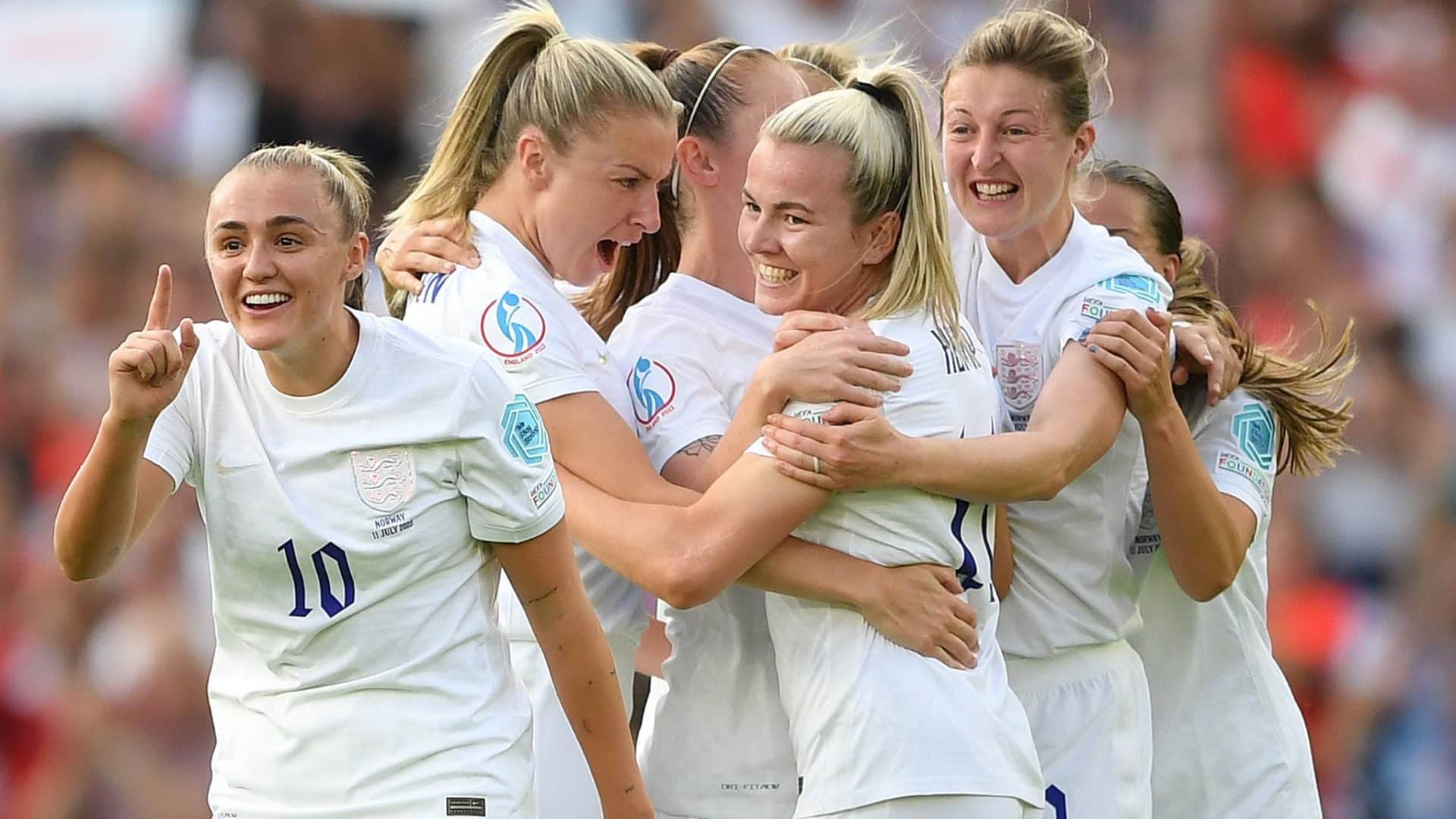England Women’s Euros Success Will Inspire A New Generation Of Female Footballers


There are moments in sport that form the genesis of dreams that inspire the next generations. Earlier this week, we perhaps witnessed yet another of these when England’s Women Football Team came from behind to beat Spain in Euro 2022.
The Lionesses are now through to the semi-finals of the European Championships, in what has already been a record-breaking tournament. This is just the beginning of their success though, and we’re going to tell you exactly why.
A changing tide
England became the highest ever scorers in Euros history by the end of the group stages. A modest 1-0 victory against Austria in the tournament’s curtain-raiser didn’t allude to the goal-fests we’d witness in the remaining two group games.
An 8-0 demolition of Norway was followed by a very solid 5-0 win over Northern Ireland. Interestingly, England Women’s biggest-ever defeat was against Norway and was also an 8-0 dubbing. The female game has really come on leaps and bounds in the past couple of decades.

England have reached semi-finals and finals before, but what makes Euro 2022 different is that they’re the hosts. That provides a huge boost to the ladies out on the pitch and even more importantly, the crowds have been huge.
We’ve already seen the record for total attendance be topped before the end of the Group Stage. On top of that, all of England’s games have been sellouts, as has the final at Wembley.
What is most encouraging though, is that the crowds are made up of women and children. You’ll hear the same songs sung for the women as you do for the men’s team, but the voices chanting are noticeably higher pitched.
Before the 21st century, football stadiums were not safe places for women and children to go to. They were simply not welcome, but now, in 2022, 90,000 of them will pack out the biggest stadium in England to potentially witness their Lionesses win their first major silverware.
A different game
The women’s game is growing in England. Not just the national team, but also the club sides too. The Women’s Super League has a ways to go to catch up with the top European leagues, but progress is being made.

That’s what I alluded to at the start of this article. There will be young girls in the crowds and watching at home that will see Georgia Stanway fire in a screamer from outside the box and want to emulate her.
They’ll pick up a ball and practice, some will make it professionally, and a few will become England internationals.
The men’s game has countless moments like this, such as Michael Owen’s worldie against Argentina in 1998 and David Beckham’s perfect free-kick against Greece to qualify England for the 2002 World Cup.
It’s not just football either, other sports have seen a similar rise after watching a special team or individual…
In Formula 1, for example, a generation of young Germans were inspired by Michael Schumacher becoming the first ever German champion. Twenty years later, the likes of Nico Hulkenberg, Nick Heidfeld, and World Champions Nico Rosberg and Sebastian Vettel all found success in the sport.
Female football had been held back for decades by the sexist attitudes of the nation against it. Football wasn’t seen as a “women’s sport” and girls were instead encouraged to play sports like field hockey and netball. Growing up in the 90s, I saw this, the girls rarely got a chance to try the same sports as the boys in PE.
Thankfully, attitudes have changed now and it appears schools give girls a more equal chance in more sports. Real investment has been, and will continue to be made thanks to new initiatives by the FA.
These girls can, and the next generation of girls will as well. The women’s game has finally got a foothold in the sporting conscience of the nation and long may it continue!










